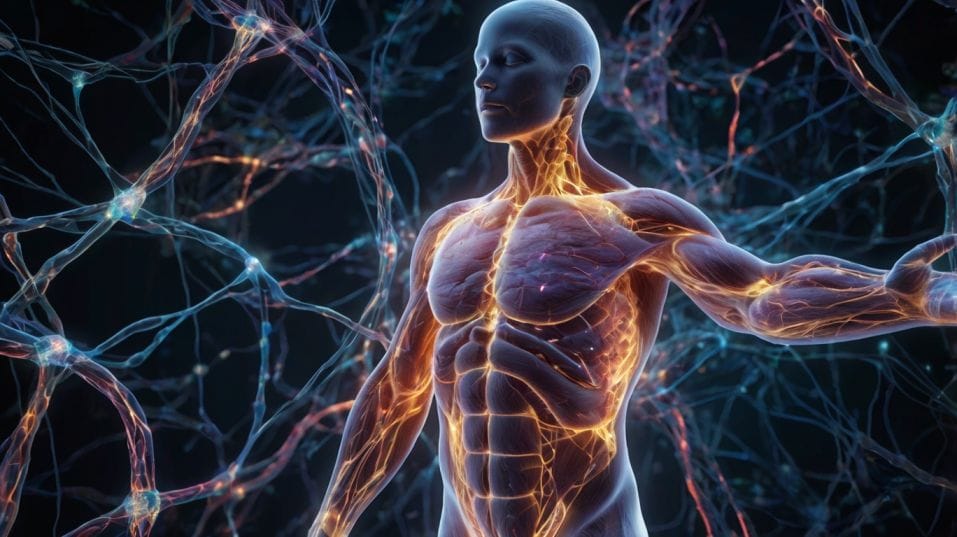How Deep Sleep Supports Hormonal Balance and Energy
Discover how deep sleep restores your energy and resets your hormones—plus real-world tips to unlock deeper, more effective rest tonight.

What if the real reason you're tired isn't your schedule—but your sleep? Deep sleep is your body’s secret weapon for natural energy, sharp focus, and hormonal balance. It’s not just about more hours in bed—it’s about the right kind of rest.
If you're ready to stop relying on caffeine or willpower to push through the day, it’s time to learn how deep sleep resets your body from the inside out. And the fix is simpler than you think.
What Exactly Is Deep Sleep—and Why Does It Matter?
Deep sleep, also called slow-wave sleep, is the most physically restorative stage in your sleep cycle. It’s when your brainwaves slow down, your muscles relax, and your body slips into full recovery mode.
It usually kicks in during the first half of the night, and most of it happens in the earlier sleep cycles—so the first few hours of sleep matter more than you realize.
While REM sleep restores your mind and consolidates memories, deep sleep is all about repairing the body. It’s the time when:
- Growth hormone peaks, fueling tissue repair, fat metabolism, and muscle development.
- Cortisol resets, helping you wake up calm and alert instead of anxious or wired.
- Insulin sensitivity is recalibrated, making blood sugar easier to manage.
- Leptin and ghrelin, the hormones that regulate hunger and satiety, rebalance—so you’re not battling cravings all day.
If your hormones feel “off,” it’s probably not just your diet or workouts. It’s your sleep architecture—specifically, how much deep sleep you’re actually getting.

How Deep Sleep Powers Your Energy Systems
Energy isn’t just about how many hours you slept—it’s about what kind of sleep you got. Deep sleep acts like a full-system reset.
It clears out cellular waste, reduces inflammation, and strengthens the immune system. But it also plays a massive role in your mitochondria—the literal power plants inside your cells.
Research shows that during deep sleep, mitochondrial function improves. That means better ATP production, which is the energy currency your body uses for everything from walking up stairs to crushing a workout.
No deep sleep? No sustained energy. Just short bursts followed by hard crashes.
This stage of sleep also restores glucose metabolism in the brain. If you’ve ever felt mentally foggy or scattered after a bad night’s sleep, that’s not just “being tired.” That’s your brain running on low fuel because it didn’t get to reset.
The more quality deep sleep you get, the more natural energy you have on tap—without needing stimulants to prop you up.
The Deep Sleep–Hormone Connection
When deep sleep kicks in, your hormonal system doesn’t just rest—it resets. This stage plays a critical role in calibrating the hormones that drive everything from metabolism to mood.
What Happens to Hormones During Deep Sleep?
Let’s break down what happens with some key hormones when deep sleep is dialed in:
- Melatonin rises naturally in darkness and helps regulate your sleep-wake cycle. It kicks off the biological cascade that leads into deep sleep.
- Growth Hormone (GH) surges during deep sleep, especially early in the night. It’s critical for muscle repair, fat loss, and cellular regeneration.
- Testosterone also peaks during sleep. Disrupted deep sleep lowers levels, especially in men, affecting strength, drive, and mood.
- Cortisol, your stress-response hormone, drops during the night. But if sleep is shallow or broken, cortisol stays high—and you wake up edgy or wired instead of calm and focused.
- Leptin and Ghrelin need deep sleep to stay balanced. Without it, ghrelin spikes (increasing hunger) and leptin drops (reducing satiety), which throws off your appetite and makes it harder to eat intuitively.
In other words, if you’re chasing fat loss, muscle growth, better mood, or steady energy—your hormones need deep sleep to get on board.
Real Strategies to Trigger Deep Sleep (That Actually Work)
Deep sleep is natural—but modern habits often sabotage it. The good news? With a few targeted adjustments, you can create the conditions your body needs to drop into deep sleep faster and stay there longer.
Start with Light Control
Your body runs on a circadian rhythm—an internal clock influenced heavily by light. Blue light from screens or overhead LEDs at night suppresses melatonin and delays deep sleep onset.
Use warm lighting after sunset. Try blue-light blockers. Dim your home like you would a spa or a campfire. Let your brain wind down naturally.
Cool It Down
A cooler core temperature signals your body it’s time for deep sleep. Set your room between 60–68°F. Sleep with breathable sheets.
Take a warm shower an hour before bed—the drop in body temp afterward helps you fall asleep faster and slip into slow-wave sleep sooner.
Keep a Tight Sleep Schedule
Your body loves rhythm. Go to bed and wake up at the same time, even on weekends. This anchors your circadian system, leading to more consistent, deeper sleep cycles night after night.
Eat for Sleep
A heavy meal too close to bed can spike insulin and disrupt your natural hormone cascade. Keep dinner balanced and aim to finish eating 2–3 hours before sleep.
Focus on magnesium-rich foods—like leafy greens, seeds, bananas, and dark chocolate—to support relaxation and muscle repair.
Manage Stress with Intent
High evening stress = high cortisol, which pushes deep sleep further away. Wind down with something real—reading, stretching, or even journaling.
Avoid mindless scrolling or chaotic TV that keeps your nervous system on alert. A short breathwork session or even a calming playlist can work wonders.
Leverage Morning Sunlight
The first thing you do after waking sets your clock for the day.
Bright natural light within 30 minutes of waking boosts cortisol at the right time, helps suppress melatonin until nightfall, and makes it easier for your body to generate deep sleep later.
Final Thoughts
Deep sleep is where your body heals, balances, and recharges. It’s not optional—it’s your foundation. When you get it right, your hormones fall into sync.
Your energy is stable. Your focus sharpens. You stop dragging yourself through the day and start powering through it.
This isn't about adding more to your plate. It’s about changing how you approach rest—strategically, deliberately, intelligently.
Start tonight. Cut the overhead lights, step away from the screen, and set your room to cave-mode. Let your body do what it’s wired to do. Get deep sleep on your side, and everything else starts falling into place.




